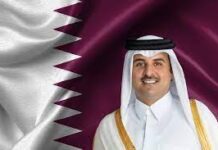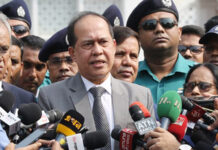Bangladesh’s no-nonsense prime minister, Sheikh Hasina, will tell world leaders to put their money where their mouth is as they gather at the UN general assembly to launch the sustainable development goals (SDGs).
The success of the 17 ambitious goals and 169 targets, which replace the millennium development goals (MDGs) established in 2000, will depend on the willingness of wealthier countries and donors to fund them, Hasina said in an interview in Dhaka.
“When the UN adopts the SDGs, this will give a good chance for us as a developing country. But I must say, about all the promises these developed countries give, sometimes when we attend these meetings, we receive so many promises but in practical terms we see very little,” she said. “We have many issues like climate change, food security – already Bangladesh has achieved food security and our people are getting two meals a day at least. But nutrition is another issue, especially for the children.
“So, of course, I will tell [world leaders] to keep their promises. World leaders should keep their word, particularly the developed countries.”
Bangladesh has become one of the developing world’s biggest MDG success stories. Hasina is alone among national leaders in having been present in New York in 2000 when the millennium declaration, which preceded the goals, was adopted, and her voice carries significant authority. “We have made many achievements, so we can share our experience with others,” she said.
The latest MDG scorecard, published this month, shows Bangladesh has reversed some of the worst poverty indicators in the world in recent years, managing to reduce maternal mortality by 40% between 2001 and 2010. Girls outnumber boys in school and extreme poverty rates were cut in half between 1990 and 2015.
“Girls’ situation has improved wonderfully since the 1990s when the BNP [the Bangladesh Nationalist party, which preceded Hasina in government] started free education and stipends,” said Kazi Morshed, a senior UN Development Programme official in Dhaka. “There has been a huge impact on child mortality and maternal mortality because of better education. Garments [have] been another success story, in terms of women’s employment.”
But serious problems remained, Morshed said, including “all aspects of the environment” such as climate change, deforestation, water-logging and an increase in CO2 emissions.
Tuberculosis is still a major concern, along with cases of asthma – Dhaka is severely polluted by vehicle fumes. Child nutrition also remained a big challenge, he said.
While not denying that problems continue, Hasina insisted overall progress has been spectacular since 2000. “In each and every goal, we have tremendous achievements, and that’s why Bangladesh has won many awards from the UN and others. Now our next step is to adopt the SDGs, and we will adopt these at the next UN session. Bangladesh is very much active on that.”
Bangladesh played a part in drawing up the broader and more detailed SDGs, which are designed to guide global development for the next 15 years.
Qazi Ahmad, chairman of the Dhaka School of Economics, said growth was averaging an annual rate of more than 6%, despite the global recession, periods of political instability, and frequent natural disasters. “If climate change had not caused natural disasters, growth would have been 1.5% higher,” he said. “It means funds are transferred from the development budget to relief every year. Without assistance Bangladesh has achieved a lot.”
Bangladesh remains one of the poorest countries in the world with 43% of people living on less than $1.25 per day, according to the World Bank, and chronic under-nutrition affecting an estimated 6-7 million children under the age of five.
“Bangladesh has made great progress economically but a lot of pockets of poverty and inequality remain,” said Robert Watkins, the UN resident coordinator in Dhaka. “There is an underclass of people who have to work for lower than the lowest Bangladesh wage.” He partly blamed a “highly legalised society” that was becoming increasingly conservative. “Bangladesh has promoted legislation, which is positive, but what matters most is how it is practised,” he said. “Sexual violence is a serious social problem.”
Some development experts and political analysts claim Hasina has put development and wealth creation before human rights issues, such as violence against women and child marriage. It remains unclear whether Hasina will take up the challenges presented by the goals’ new emphasis on peace and security, and inequality.
“The government has cherry-picked 11 out of 17 goals,” said Asif Saleh, senior director at Bangladesh’s biggest NGO, Brac, echoing the fears that more difficult social problems will be neglected. To achieve almost any of the new goals, experts agree the country will have to address its weak institutions and invest in skills and higher education.
“Local government needs to have responsibility over those they employ and needs to be financially viable,” Ahmad said. “We had a lot of influence on formulating the SDGs. We won the argument to have urgent action to combat climate change and its impacts [goal 13] included as a goal. The SDGs are difficult regarding money. Unlike the MDGs, now everyone has a stake and everyone must make a contribution.”
Hasina said she remained focused on moving Bangladesh to fully recognised, middle-income country status by 2021. “My priority is to establish this country as a poverty-free country,” she said. “We have a long way to go – we have to do more. When I have been able to establish this country as a poverty-free country, a hunger-free country, a developed country, perhaps at that time, perhaps then I may say I am proud.”
Source: Ittefaq











January 5 election didn’t give Hasina any legitimacy to say things like this. She should call for a credible election first. https://www.youtube.com/watch?v=TzLOudgAOis